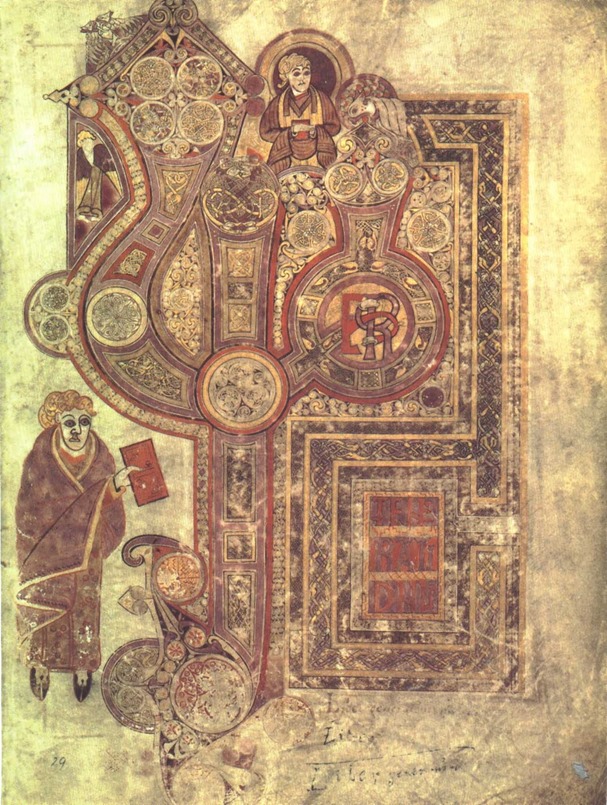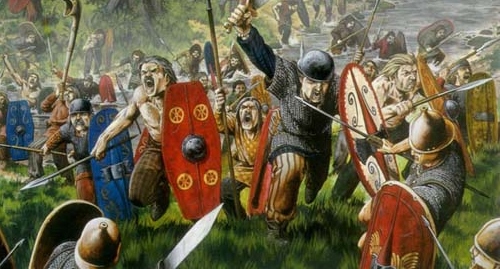Sven Longshanks
Daily Stormer
July 7, 2014
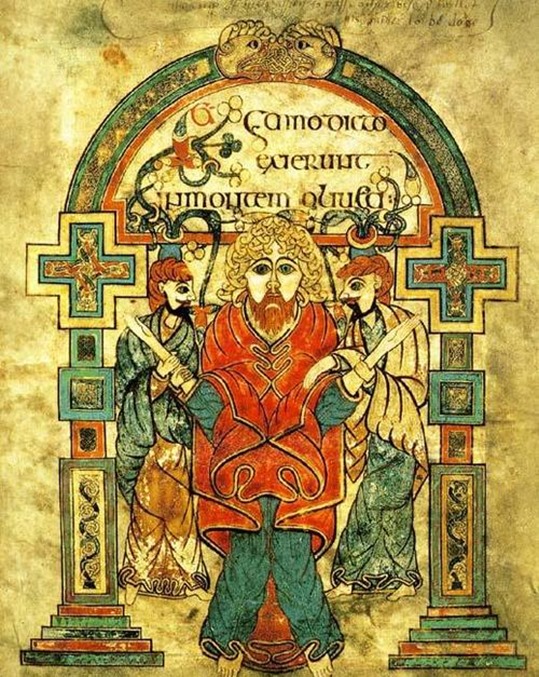
One of the most common accusations to be laid at the foot of Christianity is that it was forced on White nations against their will. People usually say this for one of two reasons: either to compare it to Islam, or to infer that peaceful Pagan Europeans had an alien religion forced upon them.
Aside from all the Biblical proofs that it was not an alien religion, the idea that our ancestors would bow before any foreign god is quite an insult to their memory. The early Church (the people, not a building or a franchise) sent out single missionaries who convinced people by their own example of a wholesome life, they did not send out conquering armies, but instead converted the conquering armies.
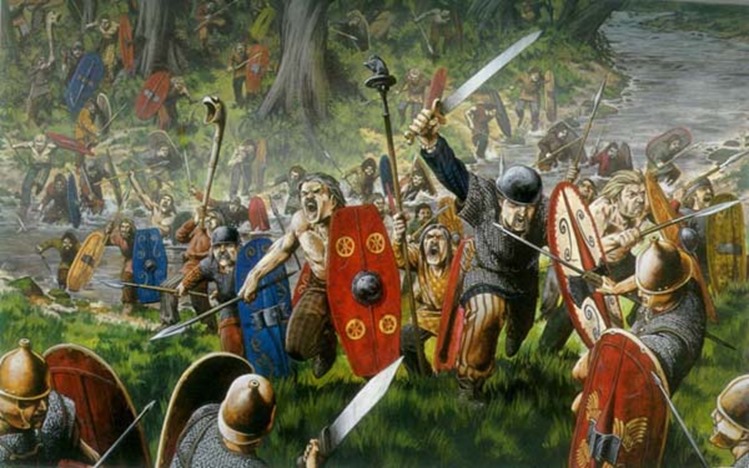
The Celts and the Druids
The British people played a much larger role in Christianity and the early Church than most people are aware of. They have the historical claim to the first Church building above ground, as well as to being the first people to proclaim themselves a Christian nation, both instances almost two centuries before Rome.
There are many records of Joseph of Arimathea travelling to Britain straight after the crucifixion between 35 and 38AD, bringing Mary the mother of Jesus with him, along with some of the other Apostles. When they got to Britain, King Caractacus granted them 12 hides of land at Glastonbury, enough to build a village in and subsist on. The remains of their wicker work buildings and Church meeting place have been dug up by archaeologists and there is a model of it at the London Museum.
Joseph was a tin trader and a ‘Nobilis Decurio’ in the Roman aristocracy, as well as being directly related to Jesus. There are folk memories of this all over western Britain, with nursery rhymes, holy wells and churches all dedicated to parts of the legend. The records of the land being given to this group are mentioned in the Domesday book a thousand years later, where land up until that point had always been granted in perpetuity and could always be reclaimed, through proof of genealogical descent. This is in accordance with Biblical law and had been the law in Britain since time immemorial.
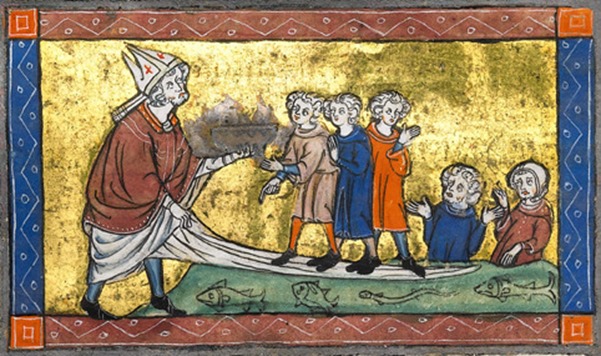
At the time of Joseph, Britain was one of the most important centers of learning in Europe.
The Druids had forty universities there and the aristocratic caste throughout Europe would send their children to them to be instructed. 60,000 students could be staying at any one time and it took 20 years to complete the education entirely, although there were separate degrees which could be taken as well, that took 3, 6 and 9 years to complete. The students were not just concerned with becoming priests, but were trained as law-givers, doctors, architects and natural philosophers too.
There were many similarities between the Druids and the Levitical priests which I won’t go into great detail about here, suffice to say that the Druids were awaiting a Messiah, followed a similar law to Moses and referred to the coming saviour of the future as Yesu.
Taliesin the sixth century Bard described the situation thus:
“Christ, the word from the beginning, was from the beginning our teacher, and we never lost his teaching. Christianity was in Asia a new thing; but never was [there] a time when the Druids of Britain held not its doctrine”
There are no conflicts recorded anywhere between the Druids and the Christians, in fact the first three Arch-Bishops of the Celtic Church were all Arch-Flamens of the Druidic order, as their fathers had been before them. To be a Druid was a hereditary position, the same as to be a Levitical priest or a Brahmin was. This hereditary title to priesthood was still being followed by the British Church right up until the twelfth century, long after the Church at Rome had become corrupted by ‘democracy’ and ‘equality.’
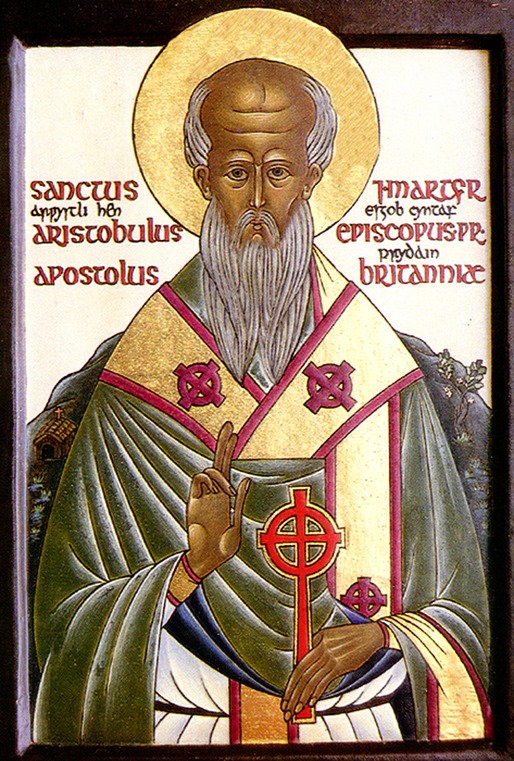
Other notable converts to the new faith from Britain are written about by the Apostle Paul in 2 Timothy 4:21:
‘Do thy diligence to come before winter. Eubulus greeteth thee, and Pudens, and Linus, and Claudia, and all the brethren.’
Prince Linus was the son of King Caractacus of Britain, Princess Claudia was the daughter of Caractacus and Pudens was a Roman officer based in Britain. Pudens’ house in Rome became the first Church meeting place there and Prince Linus was appointed by St. Paul as the first Bishop of Rome.
These early converts were all very highly placed people, Kings and Druids were right at the top of Pre-Christian Celtic society. Christianity was no revolt of the slave class, but the natural evolution of European spirituality taking place in the higher realms of the Celtic aristocracy. Pudens and Claudia’s grandson was King Lucius, who established Christianity (so named after its progenitor, Christ) as the national faith of the British people in AD156. Changing the national religion was one of three things that could only be done with the unanimous vote of the people, so there was obviously no conflict between it and Druidry. This point of being the first nation to proclaim themselves Christian has never been contested, it has only ever been affirmed at various Church Councils.
The Celtic Church really flourished in Britain, as all the greatest minds of Northern Europe were concentrated there. It was a center of much learning and the new Bishops and Monks busied themselves in their quest for knowledge, painstakingly writing down histories, genealogies, the classics and natural history, as well as Biblical texts.
Those who were particularly blessed were sent out into Europe to convert their fellow Whites. These became known as ‘Wandering Scholars’ and were the first missionaries. Ireland too had a great depository of knowledge around this time and many teachers and instructors were sent out from there also. None of these missionaries took an army with them, or tried to force their religion on anyone. The first Churches in Gaul were all founded by these Wandering Scholars from Britain and Ireland.
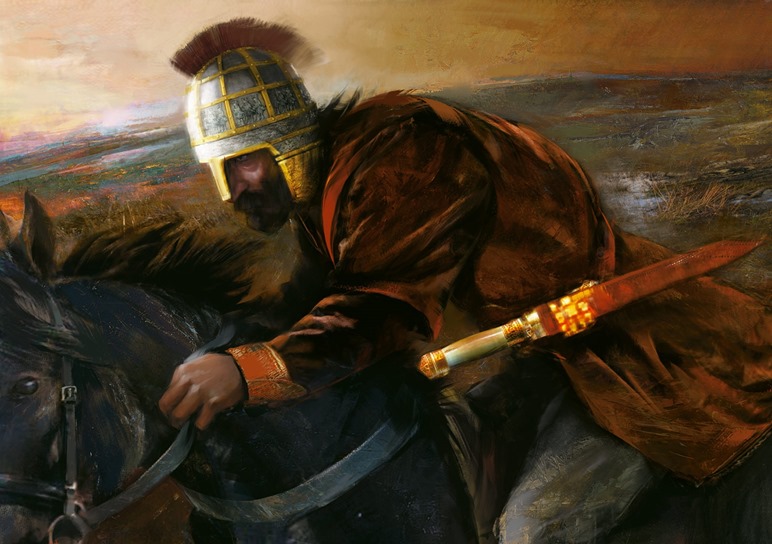
The Roman Invasions
The Pagan Romans never succeeded in their invasions of Britain, instead they were forced to make treaties and trade agreements with the British and a small Roman presence in the south of the country was tolerated. There were ten major persecutions of Christians by the Romans from AD66 to AD303, but it was not until the 3rd century that Rome started persecuting the Christians in Britain and this was not because of anything they had done, but for what they had not done. They refused to bow to the Pagan gods of Rome, which the Emperor Diocletian took to mean that they were not loyal to Rome. Like the European aristocracy still today, most of the Christians were in the army and Diocletian thought that because they would not bow to Rome’s gods, then they could not be relied upon.
Nowhere is there any record of native British people ever having bowed down to idols, no idols have ever been found in Britain that were not of Roman origin, so this ‘not bowing to the gods of Rome’ was not a new innovation of the British Christians, the new innovation was the Roman gods in the first place.
Since all the aristocracy of Northern Europe had been educated by Druids and their students who had graduated from Britain, they would have felt the same way about this too. It was not until just before the emperor Diocletian died, that the persecutions against the European Christians ended. Constantine the Great was then crowned King in Britain (his mother being Queen Helen) and he formed an army from the British people, who had all been Christian for 150 years by that time and marched on Rome to declare a new empire and a new capital – Constantinople.
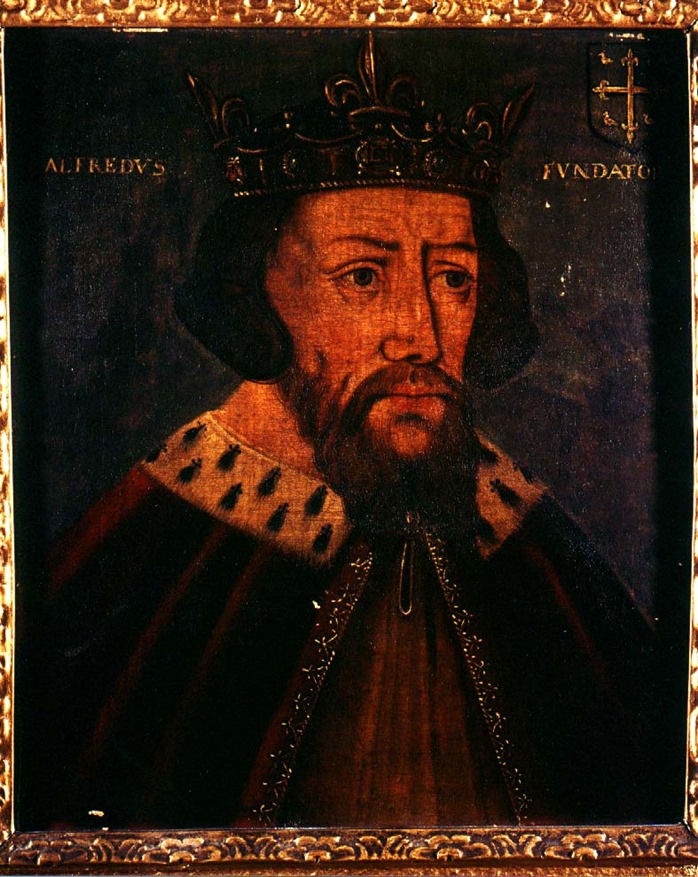
The Anglo-Saxon Invasions
Britain then had peace up until 446AD when the Jutes, the Angles and the Saxons started invading the country. They brought no idols with them either, but they were quite barbaric in their treatment of the Celtic peoples that had been living in Britain up until that point.
They ransacked the monasteries and the places of learning, destroying much of the knowledge that the Celtic church had been amassing. Besides the Church records of them doing this, we also have those of the Anglo-Saxons themselves. The Christian priests and the remaining Druids were forced to head as far west as they could get, to remove themselves from all the wanton destruction and tyranny. Both ways of living, Druidic and Christian, had been existing side by side with the same rights and duties, working together up until this point, although more and more of the Druids had been turning exclusively to Christianity.
Once a peace had been reached the Celtic missionaries began their task of converting the new colonisers to the faith. This they succeeded in doing and the Anglo-Saxons eventually realised their error. Alfred the Great in the 9th century is recorded as lamenting the state of learning that the country has descended to, from the previous golden age before the Saxon invasion. He determines to get the country back to being a great centre of culture and learning again, with universities not just for noblemen, but for anyone bright enough to be able to study. He himself starts translating the scriptures into the vulgar tongue and sets himself the task of ensuring that every village has access to a library and that every nobleman learns how to read, so that they can be instructed in the scriptures, the law and the classics.
Prior to Alfred’s translation of the Bible into the vernacular, the Celtic Church had their own version of the Bible, which preceded the Vulgate and even the earlier Latin version. This is confirmed by Sedulius, Celestius, Fastius, Gildas and Columbanus. The only authority the Celtic Church ever looked to was the scriptures, which became a cause of contention when the Church of Rome finally arrived on the shores of Kent in the 6th century, to help with converting the Anglo-Saxons.
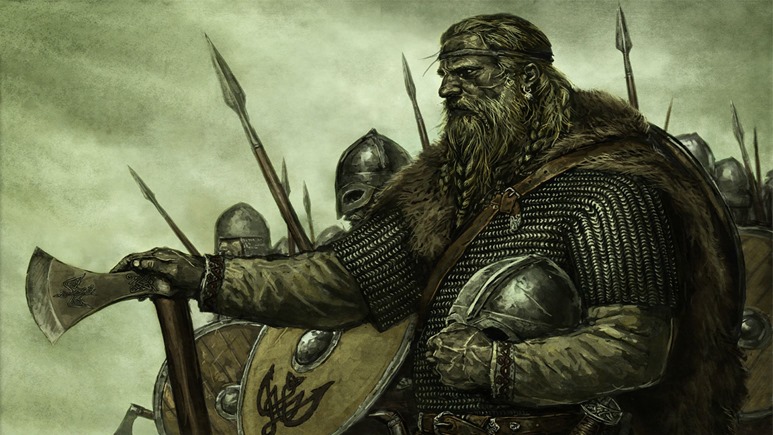
The Viking Invasions
Around the time of Alfred the Great, the Pagans invaded again. This time it was the Vikings, and just like the Romans and the Saxons before them, they were all either driven off, or allowed to stay if they agreed to abide by the Christian laws of the land.
Some of the Vikings were persuaded to convert to Christianity and they stayed in the country and honoured their vows, but others abused the Anglo-Saxon’s trust. In the manuscripts of the time, the British people are referred to as ‘The Christians’ and the Vikings are referred to as ‘The Pagans.’
Eventually the Pagans that did not make peace and become Christians were driven back to their northern lands and another period of great learning began, with much invention and innovation which led to Britain becoming the envy of Europe for her law-abiding and happy subjects.
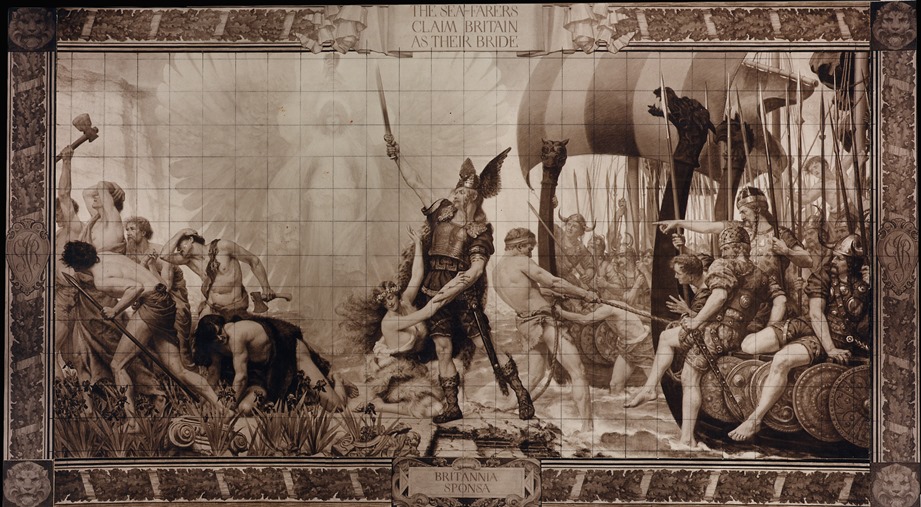
The Norman Invasion
It was this envy that caused the Norman King William the Bastard to wish to invade and take Britain for himself. This is the first instance of Christians invading other Christians and it did not take place until a thousand years after the birth of Christianity. It was helped by a split in the original Church, which had previously consisted of what later became known as the Celtic Church, the Roman Catholic Church and the Orthodox Church, who had all been following the same scriptures and with the same faith, but with slight dogmatic differences.
A large part of the split was occasioned by the Pope’s claim to authority over the other Patriarchs. Prior to this point, they had all had the same authority but over different jurisdictions and the Pope was seen as being the first among equals, rather than being of a higher rank than the others.
The Pope gave his blessing to King William after the Norman invasion, as he had subjected the British Church to Rome instead of to Constantinople, which had previously had the position of being the highest Court Britain could appeal to. The new Norman overlords were the descendants of the very same Vikings who had attacked two centuries before, even fighting under the same battle flag that had been used against King Alfred. In the 200 years in between then and now, they had pledged their loyalty to Rome and the Latinised doctrine, rather than the Celtic or Orthodox one. By the time William had finished interfering, there were only two clergy left in the British Church that were actually native to England. Along with the foreign clergy he also brought the Jews with him to act as tax collectors, this being the first time the Christ-killers had ever set foot in Britain.
All this time up until this point, no Christian Englishman had ever invaded another country with a view to altering its religious beliefs, but he had seen his own homeland destroyed by successive waves of foreign White Pagans many times and was now seeing it destroyed by people who claimed to share the same faith as him. Before this, the only Christians to travel to other countries to try to convert them were the wandering scholars, who would arrive at the King’s court in the same way as Joseph of Aramathea had done, to explain their mission to the Monarch and to request permission to live in peace and achieve it.
They never arrived with an army to force conversions by the sword and they never would have dreamt of trying to convert Arabs, Negroes or Chinamen.
